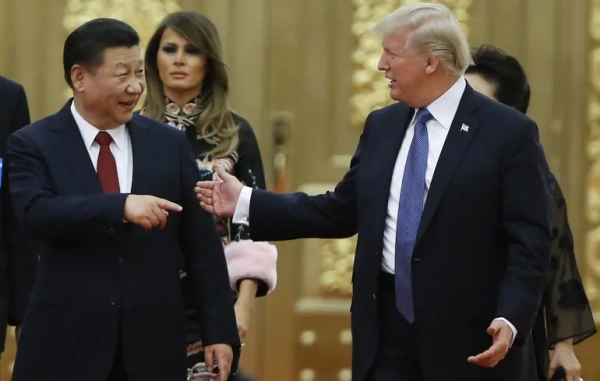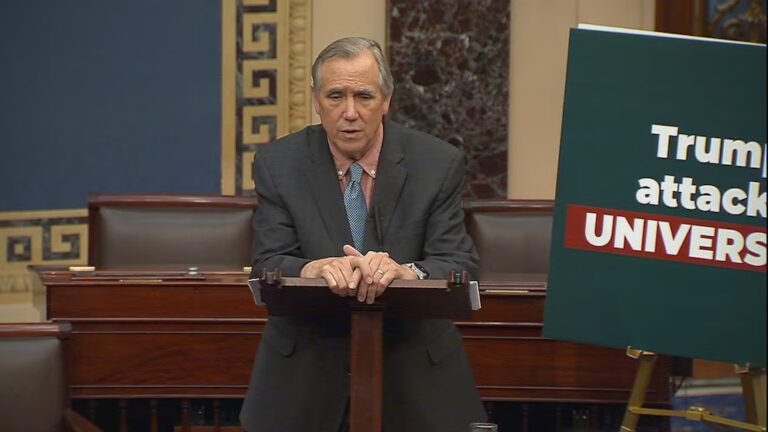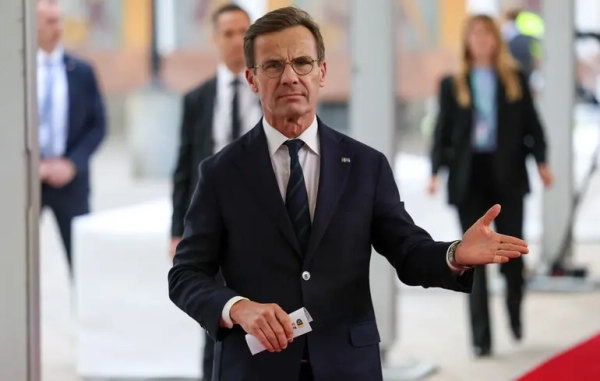
Stock market investors don’t love the idea of a Gary Cohn-less White House. Markets opened lower on Wednesday morning, the day after the National Economic Council director announced plans to resign. He was widely considered Wall Street’s most important ally in the Trump administration.
The Dow Jones Industrial Average opened more than 300 points lower, or down around 1 percent. The S&P 500 fell by 0.7 percent, and the Nasdaq declined by 0.6 percent.
Market volatility, which until February had been historically low for months, climbed, with the Coe Volatility Index, commonly considered a gauge of investor fear, jumping by more than 7 percent.
Cohn’s exit caused global shock waves as well. Asian markets closed with losses and European stocks were mixed.
Concerns about a potential trade war, brought about by President Donald Trump’s plans to put tariffs on aluminum and steel imports, have rattled markets in recent days. On March 1, the day Trump announced the tariffs, the Dow ended the day with a 1.68 percent decline, the S&P fell by 1.33 percent, and the Nasdaq dipped by 1.27 percent.
Cohn was viewed as a moderating force in the White House and was seen as having expertise in finance and economics that many others in the president’s orbit lack. “He speaks Wall Street’s language,” Ian Katz, an analyst at the Washington research firm Capital Alpha Partners, wrote on Tuesday in an email to clients.
The former Goldman Sachs president and chief operating officer helped shepherd through the 2017 tax bill, a boon to Wall Street. He is also a free trade advocate who pushed hard against Trump’s tariffs — a battle he lost, hence his exit.
“Cohn has been viewed as a moderating force inside the White House and his departure will undoubtedly exacerbate the market’s recent trepidation,” Isaac Boltansky, director of policy research at Washington, DC-based investment firm Compass Point, said in a Wednesday note to clients. But, he pointed it, it could have been worse — say, if Cohn had left during the tax reform push last year. “Our sense is that the brain drain at the White House, coupled with the acuteness of the trade policy debate, will foster a risk-off bias,” said Boltansky.
While US stocks were lower on Wednesday, the decline wasn’t nearly as sharp as early February’s market turmoil, when the Dow saw its biggest single-day drop in a day and the S&P 500 entered correction territory (a decline of at least 10 percent from its previous high).
“Wall Street just lost its security blanket,” Chris Krueger, Washington strategist at research firm Cowen, said in a Tuesday note to clients after Cohn’s announcement. “It’s not just Cohn’s offensive market skill that will be missed — he was arguably the best defensive player in the West Wing keeping the protectionist advances at bay.”
Cohn’s exit signals a more aggressive approach to trade
Protectionist forces in the White House are rising — figures such as trade adviser Peter Navarro, Commerce Secretary Wilbur Ross, and US Trade Rep. Robert Lighthizer — and all signs point to Trump continuing to push ahead on the tariff idea.
On Twitter on Wednesday morning, Trump railed against the trade deficit and the loss of American factories and jobs. (While trade is part of the equation, technology and globalization are also major and likely more important forces.)
The tariff proposal has stoked fears of a trade war and chatter of retaliation from Europe, Canada, and others. Cohn probably won’t actually leave the White House for a few weeks, but his role is certainly diminished, and he appears to have lost the tariff battle to Trump’s protectionist instincts.
It’s not yet clear who might replace Cohn — potential names being floated include Navarro, conservative economic commentator and former Reagan aide Larry Kudlow, Office of Management and Budget Director Mick Mulvaney, former restaurant chain CEO Andrew Puzder, former Federal Reserve Gov. Kevin Warsh, and Shahira Knight, Cohn’s deputy. Investors would obviously prefer certain candidates over others — Kudlow would be much more welcome than, say, Navarro.
As for Cohn, he has already accomplished much of what Wall Street wanted out of him — namely, the tax bill. Moreover, the Trump administration’s deregulatory bent is a permanent fixture that won’t change anytime soon. And how much Cohn did to actually moderate Trump — or how much anyone can do — is debatable.
But it’s clear the markets would rather have him there than not. “More than anyone else in the White House, Cohn had credibility with the markets,” Katz, the Capital Alpha analyst, said. “Now that he’s out, the question is who takes over that mantle. Treasury Secretary Steven Mnuchin is seen as someone who shares Cohn’s views, but he doesn’t have quite the proximity of a presidential adviser and has his own big department to run.”
Trump, who spent much of the first year of his presidency bragging about the stock market, has quieted down about the topic as of late. With Cohn’s exit, and given that markets have been a lot rockier lately than they were last year, chances are he won’t start back up anytime soon.
Sourse: vox.com






